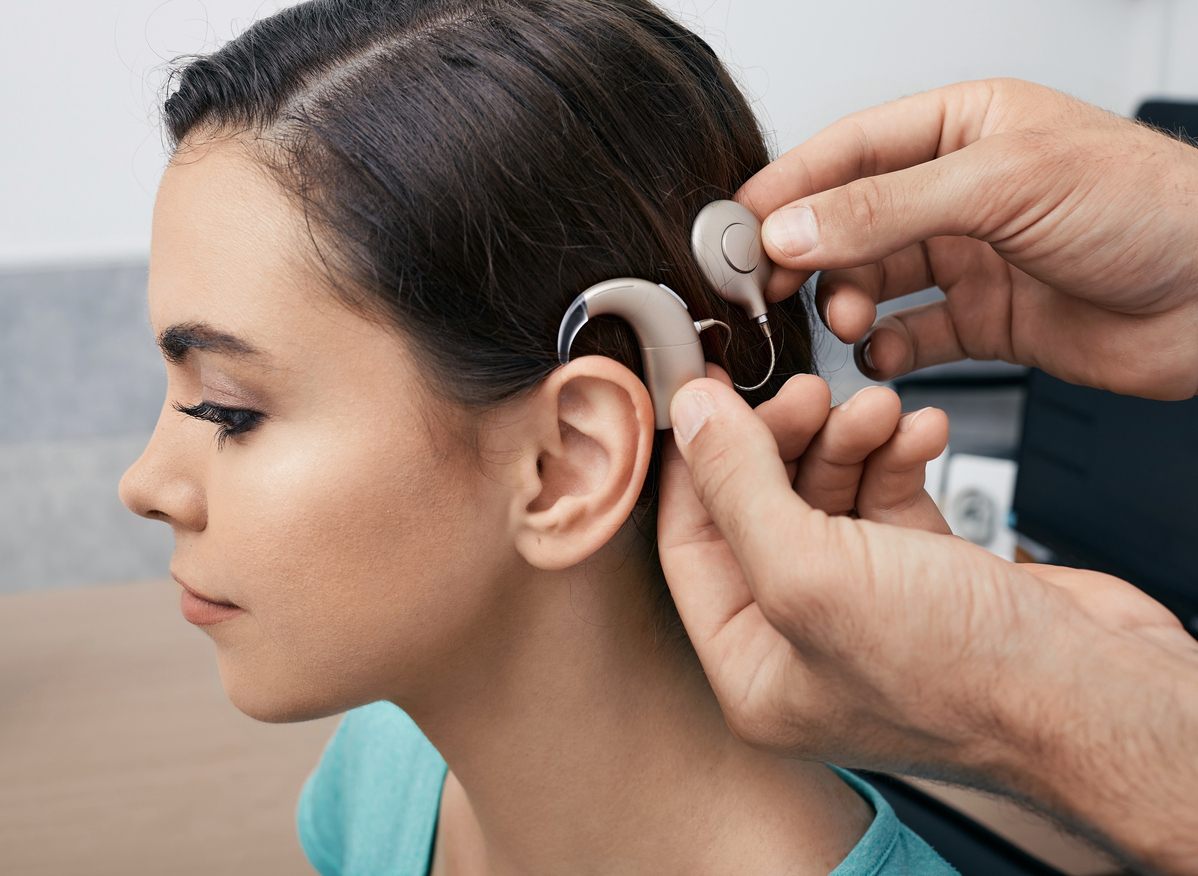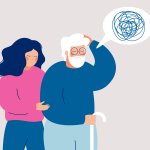
What is deafness?
Deafness is the complete loss of hearing. What some people call partial deafness is now better known as being hard of hearing. For more information, see our page on hearing loss.
If you are deaf, you cannot hear well enough to hold a conversation through sound alone, although some people who are deaf hear noises in their ears like ringing, humming, hissing, whistling, clicking, roaring, whooshing or buzzing. This is known as tinnitus.
Children who have hearing problems might not respond to your voice or loud noises. They might also search for your voice, or be doing poorly at school, or seem unusually sad or angry. Read more about signs of hearing loss in children here.
What causes deafness?
Deafness is often caused by:
- exposure to loud noise
- some medicines and medical conditions
- abnormal growth of the tiny bones in the middle ear
- damage or malfunction of the cochlear in the inner ear
- problems with the nerve between the cochlear and the brain
Some people are born deaf. Others become deaf over time – this is more common in people who work in noisy environments, or with machinery and loud tools, or who have been in war zones. It is also more common with age.
Living with deafness
If you have hearing problems, let friends, family members and work colleagues know, so that they can communicate better with you.
If you know someone with hearing problems, you should make sure that they can see your face when you are talking to them. Avoid trying to talk to them in noisy environments. You could also try communicating with them in writing, or with a physical demonstration.
Hearing aids can be an effective way of improving hearing for some people since they make sounds louder. They can sit behind your ear, or in your ear.
Another option is a bone conduction hearing aid. This device bypasses your outer and middle ear and uses vibrations in your skull to help you hear.
Your doctor might recommend a Cochlear implant. These devices use digital code and electrical impulses to send sounds to the inner ear (the cochlear). These sounds are then sent to your brain along your auditory nerve.
Learning sign language can also help you communicate, whether you are deaf or know someone who is deaf. Auslan Signbank has information about Auslan sign language and classes.
Unfortunately, in adults, deafness can cause problems at home and at work. It can lead to social withdrawal, isolation and depression. Deaf people may experience discrimination in education, employment and other parts of life.
In children, deafness can be associated with learning and behavioural problems. It’s important to contact your doctor as soon as possible if you suspect your child has a hearing problem.
The deaf community
While many people see deafness as a problem, others see it as just another way of being. There is a strong deaf community with its own culture. Many find it offensive that deafness is seen as an abnormality, and they don’t seek ‘cures’ or treatment for deafness.
The organisation Aussie Deaf Kids puts it this way: ‘In a room full of deaf people, it is the hearing person who cannot sign who is disabled.‘
If you or your child is deaf, being part of the deaf community can provide a lot of strength and support.




